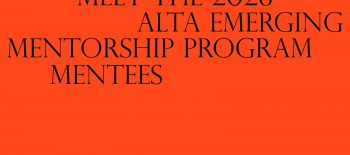Release date: December 13, 2021
This interview is a part of the Polish & Flourish series—where we speak with inspiring individuals of Polish background.
George Zamka is a former NASA astronaut, with Polish-Columbian roots, born in Jersey City and raised in New York. When leading a 2010 NASA space mission, Zamka wanted to celebrate his Polishness by bringing something to space, and, encouraged by his friend and a film director Adam Ustynowicz, he brought with him a CD with Frédéric Chopin’s music—this initiative inspired the film CHOPIN: THE SPACE CONCERT (2012). In light of the recent XVIII International Chopin Competition, we spoke with Zamka to commemorate this inspiring initiative. We spoke about the overall experience of being on a space mission, and how once’s perspective shifts once one looks at Earth from space.
Biography from NASA’s website:
GEORGE D. ZAMKA (COLONEL, USMC, RET.) NASA ASTRONAUT (FORMER) PERSONAL DATA: Born in 1962 in Jersey City, New Jersey. Raised in New York City; Irvington, New York; Medellin, Colombia; and Rochester Hills, Michigan. Married to the former Elisa P. Walker of Mississippi; they have two children. He enjoys weightlifting, running, bicycling, scuba diving and boating. His mother, Sofia Zamka, and brother, Conrad P. Zamka, both live in Florida. His father, Conrad Zamka, resides in Indiana.
EDUCATION: Graduated from Rochester Adams High School, Rochester Hills, Michigan, in 1980. Received a Bachelor of Science degree in Mathematics from the United States Naval Academy in 1984; received a Master of Science degree in Engineering Management from the Florida Institute of Technology in 1997.
ORGANIZATIONS: Association of Space Explorers, United States Naval Academy Alumni Association, Marine Corps Association and Marine Corps Aviation Association National Aeronautics and Space Administration
SPECIAL HONORS: NASA Space Flight Medal (two), NASA Outstanding Leadership Medal, Legion of Merit, Distinguished Flying Cross, Defense Meritorious Service Medal, Meritorious Service Medal, Navy Strike Air Medal (six), Navy Commendation Medal with Combat V and various other military service and campaign awards. Distinguished Graduate, United States Naval Academy. Commodore’s list and Academic Achievement Award, Training Air Wing Five. Awarded the Officer’s Cross of the Order of Merit of the Republic of Poland.
EXPERIENCE: Zamka was commissioned as a second lieutenant in the United States Marine Corps after graduating from the United States Naval Academy in May 1984. After basic flight training, he was trained as an A-6E pilot at Whidbey Island, Washington, from 1987 to 1988. He then flew with Marine All Weather Attack Squadron VMA(AW)-242 in El Toro, California. He served in administration and flight safety roles and also as squadron weapons and tactics instructor. In 1990, he trained to be an F/A-18 pilot and was assigned to Marine All Weather Fighter Attack Squadron VMFA(AW)-121, also in El Toro. He flew the F/A-18D Night Attack Hornet during overseas deployments to Japan, Korea, Singapore and Southwest Asia. Zamka flew 66 combat missions over occupied Kuwait and Iraq during Desert Storm. In 1993, he served with 1st Battalion, 5th Marines in Camp Pendleton, California, and the 31st Marine Expeditionary Unit in the Western Pacific. He was selected to attend the United States Air Force Test Pilot School class 94A and graduated in December 1994. Zamka was then assigned as an F/A-18 test pilot/project officer and the F/A-18 operations officer for the Naval Strike Aircraft Test Squadron (NSATS). While assigned to NSATS, Zamka flew a wide variety of tests in the F/A-18 Hornet, including high angle of attack, loads, flutter, crew equipment and weapon system programs. Zamka returned to VMFA(AW)-121 in 1998 and was serving as the aircraft maintenance officer deployed to Iwakuni, Japan, when he was selected for the astronaut program. Colonel Zamka retired from the Marine Corps in August 2010.
He has logged more than 5,000 flight hours in more than 30 different aircraft.



